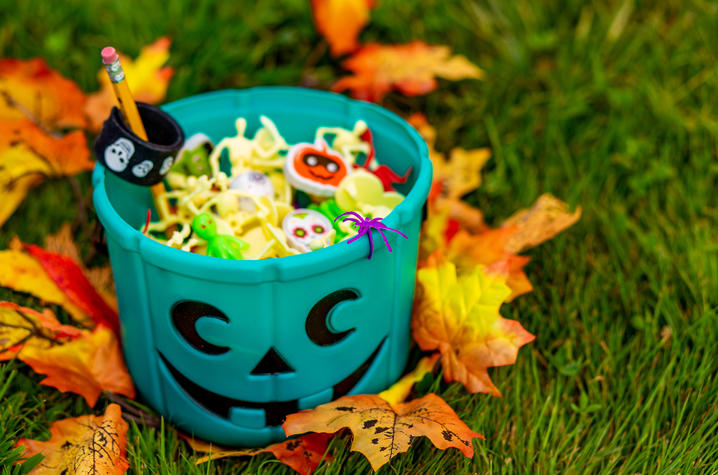How to have a spooky and safe Halloween

The University of Kentucky Public Relations & Strategic Communications Office provides a weekly health column available for use and reprint by news media. This week’s column is by Sherri Hannan, a registered nurse at Kentucky Children’s Hospital and coordinator for Safe Kids Fayette County.
LEXINGTON, Ky. (Oct. 25, 2024) — Spooky season is here! Halloween is next week, and children are surely excited to wear their costumes and get as much candy as possible.
Although Halloween is a fun holiday for families, it can also one of the most dangerous holidays. There are several health risks Halloween can bring that parents, children and young adults should be mindful ahead of the holiday.
Here are a few tips on how children and adults can be safe and enjoy a fun night of trick-or-treating.
Children and pedestrian safety: According to the U.S. Centers for Disease Control and Prevention, children are four times more likely to be struck by a car on Halloween night than any other night. With trick-or-treaters running from house to house in dark costumes, drivers may have a hard time seeing them, which can lead to accidents.
To prevent this, neighborhoods should monitor speeding during trick-or-treating, and parents should make sure their child wears reflective or bright-colored items, such as glow sticks, on their costumes or candy bags. Trick-or-treaters of all ages should stay close to the sidewalks and look both ways before crossing the street.
Costume safety: Choosing the perfect costume is what makes Halloween special, but certain costumes can be safety hazards. Long costumes — like princess dresses — can cause tripping, some types of face paint can cause rashes and unsafe accessories like swords can lead to injuries. The Consumer Product Safety Commission mentions how tripping or falling from costumes is the second most common injury during Halloween.
When selecting a costume, make sure it is the appropriate length to prevent falls and use nontoxic face paint approved by the Food and Drug Administration. If you or your child plan to wear decorative contact lenses, make sure they are prescribed by a professional to avoid eye injuries.
Food allergies: The variety of candy collected on Halloween can be a hidden danger for children and young adults with food allergies. Children may be excited to eat candy before parents get a chance to check what’s in their buckets.
To help prevent allergic reactions, parents should make sure their child’s candy does not contain anything they’re allergic to. Teenagers and young adults need to be aware of what they are eating on Halloween or make sure they have an epi-pen with them in case of a reaction. Parents can also look for teal pumpkins on porches. Those are generally a sign that there are goodies especially for kids with allergies.
Halloween can cause many health risks throughout the night that people should be aware of, but it doesn’t mean you can’t have fun. Remember to be cautious crossing streets, choose safe costumes and double-check candies for food allergies to ensure a fantastic and spooky holiday. Most importantly, remember to have fun and create lasting memories this Halloween!
UK HealthCare is the hospitals and clinics of the University of Kentucky. But it is so much more. It is more than 10,000 dedicated health care professionals committed to providing advanced subspecialty care for the most critically injured and ill patients from the Commonwealth and beyond. It also is the home of the state’s only National Cancer Institute (NCI)-designated Comprehensive Cancer Center, a Level IV Neonatal Intensive Care Unit that cares for the tiniest and sickest newborns and the region’s only Level 1 trauma center.
As an academic research institution, we are continuously pursuing the next generation of cures, treatments, protocols and policies. Our discoveries have the potential to change what’s medically possible within our lifetimes. Our educators and thought leaders are transforming the health care landscape as our six health professions colleges teach the next generation of doctors, nurses, pharmacists and other health care professionals, spreading the highest standards of care. UK HealthCare is the power of advanced medicine committed to creating a healthier Kentucky, now and for generations to come.




